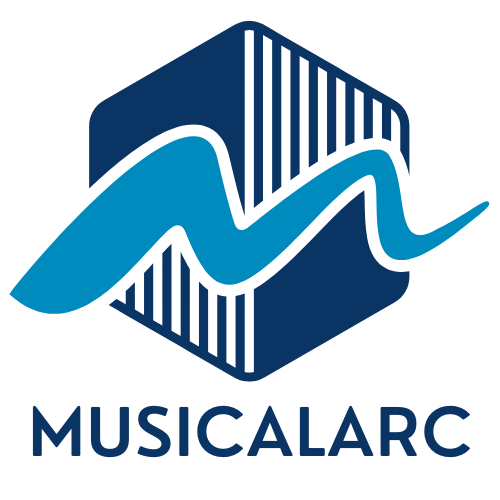In today’s fast-paced work environment, career development tools are the secret sauce every employee needs to spice up their professional journey. Think of them as the GPS for navigating the sometimes bumpy road to success. Without these handy tools, employees might find themselves lost in a maze of missed opportunities and dead-end jobs, wondering if they accidentally took a wrong turn at the water cooler.
Table of Contents
ToggleOverview of Career Development Tools for Employees
Career development tools assist employees in navigating their professional paths effectively. These tools offer resources that enhance skills, knowledge, and career progression.
Assessment tools provide employees with insights into their strengths, weaknesses, and interests. Such tools include personality tests and skill assessments that identify areas for growth.
Mentorship programs establish connections between experienced professionals and emerging talent. Employees benefit from personalized guidance and insights that cultivate their career trajectories.
Training and development platforms offer opportunities for continuous learning. Online courses, workshops, and certifications enable employees to expand their skill sets relevant to industry demands.
Performance management systems facilitate goal setting and feedback mechanisms. Employees gain clarity on performance expectations and receive constructive feedback to foster improvement.
Networking events and professional organizations promote relationship building. Employees connect with peers and industry leaders, enhancing opportunities for collaboration and growth.
Career coaching services deliver personalized support and tailored strategies. Coaches assist employees in defining career goals and creating actionable plans for achieving them.
Incorporating these tools leads to increased job satisfaction and engagement. Employees experience a greater sense of direction and purpose in their work, ultimately driving organizational success.
Types of Career Development Tools
Career development tools play a crucial role in shaping employees’ skills and objectives. Various options cater to different needs and preferences within the workplace.
Online Learning Platforms
Online learning platforms provide employees with access to a wealth of knowledge. Courses range from technical skills to soft skills, enabling learners to progress at their own pace. Popular platforms like Coursera and Udemy offer certifications that enhance resumes. Organizations often encourage employees to engage with these resources for continuous improvement. Learning through these platforms supports career advancement by equipping individuals with relevant skills.
Mentorship Programs
Mentorship programs foster relationships between experienced professionals and those seeking guidance. Such relationships create opportunities for knowledge sharing and skill development. Most mentorship programs involve structured engagements, including regular meetings and goal-setting sessions. Positive impacts often include increased confidence and a clearer career path for mentees. Companies that implement these initiatives typically see higher employee retention and satisfaction.
Performance Management Systems
Performance management systems streamline the process of setting and achieving career goals. Regular feedback from supervisors helps employees understand their strengths and areas for improvement. Setting measurable objectives within these systems promotes accountability and growth. Additionally, these tools might include performance reviews that can influence promotions and pay raises. Organizations utilizing effective performance management systems tend to see enhanced employee performance and engagement.
Benefits of Using Career Development Tools
Career development tools provide significant advantages for both employees and organizations. These tools enhance growth opportunities while fostering a sense of belonging.
Enhanced Employee Engagement
Engagement levels soar when employees use career development tools. Increased participation in mentorship programs allows employees to connect meaningfully with mentors. Accessing online learning platforms motivates employees to take charge of their skill advancement. Regular feedback from performance management systems keeps employees informed about their progress. High levels of engagement often lead to improved job satisfaction and retention rates. Research indicates that engaged employees are 17% more productive.
Improved Skills and Competencies
Skills enhancement occurs when employees actively use career development tools. Online courses allow employees to learn new skills relevant to their roles at their own pace. These platforms provide certifications that strengthen resumes and boost employability. Mentorship programs facilitate skill-sharing, giving employees firsthand insights from experienced professionals. Performance management systems set measurable goals, helping employees track their skill development efficiently. As a result, organizations benefit from a workforce equipped with current and competitive skills.
Implementing Career Development Tools
Implementing career development tools requires careful planning and understanding of employee needs. Organizations must identify specific skills gaps and professional aspirations to align tools with employee goals.
Assessing Employee Needs
Understanding individual employee needs forms the foundation of any effective development strategy. Start by conducting surveys or interviews to gather insights on employees’ career aspirations and skill deficiencies. Engaging with employees encourages open dialogues about their objectives. Analysis of this data helps prioritize which skills require attention. A focus on personal growth not only enhances job satisfaction but also drives productivity. Tools that facilitate self-assessment can provide employees with clarity on their strengths and areas for improvement.
Choosing the Right Tools
Selecting the appropriate career development tools depends on organizational goals and employee preferences. First, evaluate various tools available in the market, such as online courses, mentorship programs, or performance management systems. Organizations must choose tools that match employee learning styles and the specific competencies they aim to develop. Employee input during the selection process fosters a sense of ownership, leading to higher engagement levels. Ensure tools provide measurable outcomes to assess their effectiveness over time. An ongoing evaluation process enables continuous improvement of development initiatives.
Measuring the Effectiveness of Career Development Tools
Evaluating the effectiveness of career development tools hinges on specific metrics that reflect their impact. Organizations often track employee engagement levels to assess participation in programs like online learning platforms and mentorship initiatives. High engagement rates link directly to improved job satisfaction, demonstrating the positive influence of these tools.
Performance management systems play a critical role in measuring progress. Regular feedback and goal-setting foster an environment of accountability, enhancing overall performance. Research indicates that organizations utilizing these systems report a 17% increase in employee productivity compared to those that do not.
Surveys and interviews provide direct insights into employee experiences with development tools. Feedback from employees helps identify strengths and weaknesses in available resources. Continuous collection of this data supports adjustments that align tools with evolving employee needs.
Quantitative metrics, such as completion rates for online courses, also offer valuable insights. Tracking the number of certifications achieved can show clear progress in skill enhancement. Organizations should analyze this data alongside qualitative feedback to gain a comprehensive understanding of effectiveness.
Ultimately, organizations that prioritize ongoing evaluation of career development tools create opportunities for continuous improvement. Aligning tools with employee aspirations ensures relevance, fostering stronger commitment to professional growth. Adjusting programs based on data-driven insights increases their impact and reinforces a culture of development within the organization.
Investing in career development tools is essential for both employees and organizations. These resources empower individuals to take charge of their growth and navigate their career paths with confidence. By fostering a culture of continuous learning and open communication, organizations can enhance employee engagement and satisfaction.
Utilizing tools like mentorship programs and online learning platforms not only equips employees with the necessary skills but also promotes a sense of purpose in their roles. As organizations prioritize these development initiatives, they pave the way for a more skilled and motivated workforce. Ultimately, embracing career development tools leads to mutual benefits, creating a thriving environment where both employees and organizations can succeed.




